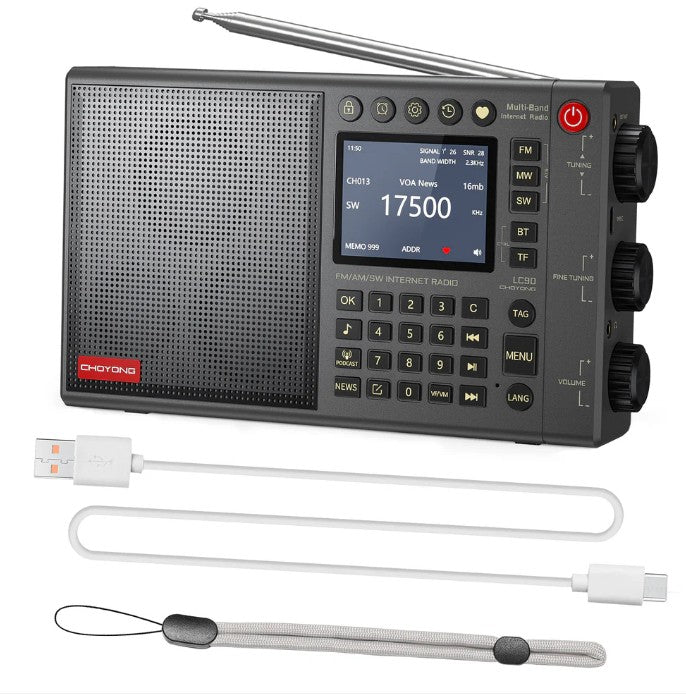
Why Choose Internet Radio and How Does It Work?
Share
In today’s digital age, radio has evolved beyond traditional FM and DAB (Digital Audio Broadcasting) transmissions. Internet radio is a modern way to enjoy radio stations worldwide, offering unlimited access to diverse content without geographical restrictions. But how does internet radio work, and how does it compare to DAB radio? Let's explore the key differences and advantages of this innovative technology.
What Is Internet Radio?
Internet radio, also known as online radio or streaming radio, is a digital service that allows users to listen to live radio broadcasts or pre-recorded shows over the internet. Unlike traditional radio, which relies on AM, FM, or DAB signals, internet radio streams audio data using internet protocols. This means that as long as you have an internet connection, you can access thousands of stations from around the world, including niche and independent broadcasters that may not be available on traditional platforms.
How Does Internet Radio Work?
Internet radio operates through a process called audio streaming. Here’s how it works:
-
Broadcasting – A radio station records audio content and encodes it into a digital format.
-
Streaming Server – The encoded audio is sent to a streaming server, which processes and distributes the stream to listeners.
-
User Access – Listeners connect to the internet radio station using a web browser, app, or a dedicated internet radio device.
-
Playback – The stream is played back in real-time, allowing users to listen without downloading large files.
Internet Radio vs. DAB Radio: Key Differences
While both internet radio and DAB radio offer digital audio experiences, they differ in several ways:
1. Technology & Transmission
-
Internet Radio: Uses an internet connection to stream content, providing access to an unlimited number of stations worldwide.
-
DAB Radio: Uses terrestrial digital radio signals to broadcast a fixed number of stations in specific regions.
2. Station Availability
-
Internet Radio: Offers thousands of stations globally, including niche, independent, and international channels.
-
DAB Radio: Limited to stations available in the local broadcasting region.
3. Sound Quality
-
Internet Radio: Generally offers high-quality sound (often 128kbps to 320kbps), depending on the station’s streaming settings and internet speed.
-
DAB Radio: Sound quality varies; standard DAB broadcasts at lower bitrates (typically 64kbps-128kbps), while DAB+ provides improved quality.
4. Accessibility & Flexibility
-
Internet Radio: Accessible from any device with an internet connection, including computers, smartphones, smart speakers, and internet radio devices.
-
DAB Radio: Requires a compatible DAB radio receiver and is limited to areas with DAB signal coverage.
5. Reliability
-
Internet Radio: Depends on a stable internet connection; high-speed broadband ensures smooth playback, but poor connectivity may cause buffering.
-
DAB Radio: More reliable in areas with good DAB coverage, unaffected by internet issues but limited by geographical reach.
Why Choose Internet Radio?
With increasing internet availability and smart devices, internet radio offers significant benefits:
-
Unlimited Choice: Listen to stations from any country and explore genres beyond local offerings.
-
On-Demand Content: Many internet radio stations offer podcasts and recorded shows for flexible listening.
-
Smart Device Integration: Compatible with smart speakers (Alexa, Google Home), car infotainment systems, and mobile apps.
-
High-Quality Audio: Provides better sound quality than many traditional DAB broadcasts.
Conclusion
Internet radio is transforming the way people experience audio entertainment. With its ability to offer global access, high-quality streaming, and flexible listening options, it’s an excellent alternative to traditional DAB radio. Whether you’re a music lover, news enthusiast, or podcast fan, internet radio brings endless possibilities to your fingertips. If you're considering upgrading your listening experience, internet radio might be the perfect choice for you.